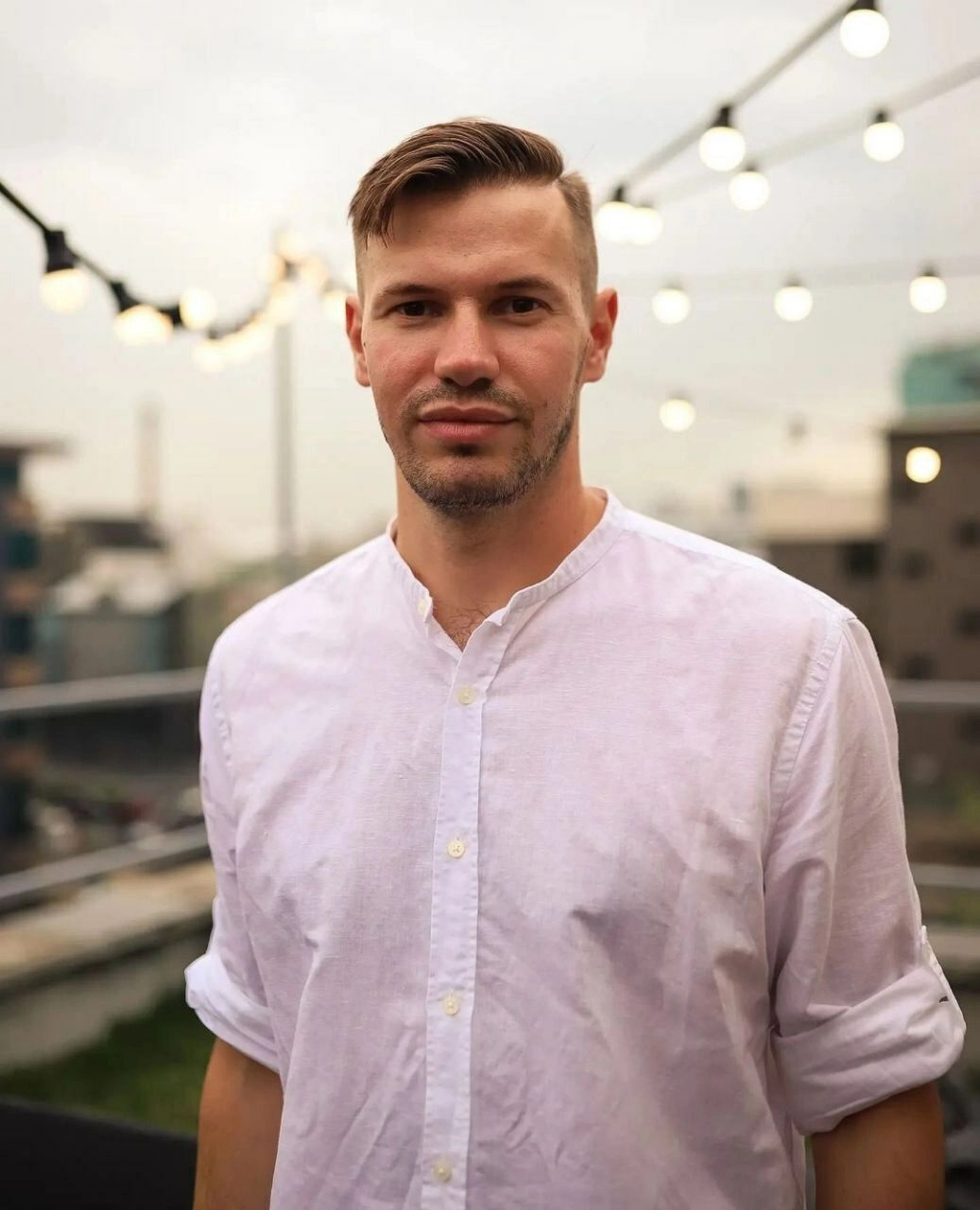
Marcel
26 years old
Programmer
Teacher about student
Marcel came with a large amount of scattered knowledge, which more often hindered than helped him. He could speak, but did so very slowly and with great difficulty. Now his knowledge has become systematic, he speaks much better and faster, and in writing, he has made tremendous progress.
B1+
уровень Марселя сейчас
A1+
уровень Марселя на момент входного тестирования и интервью
20 months
Marcel has been Duck English student
How did you study English before?
There was virtually no English in my school and university education (it was nominally present, but it's not worth discussing). I studied with private tutors, but I didn't feel any progress at all; I saw neither a system nor results. Besides that, I tried learning English through a multitude of services: LinguaLeo, Duolingo, Polyglot, a well-known platform (changed 3 or 4 teachers, had more than 20 lessons in total), another well-known platform, watched movies/YouTube, listened to music, studied at a language school in Ireland, Yandex.Flow (a practical course), and learned at online schools (two of them), where I attended group lessons (here, by the way, I realized that group lessons do not suit me at all) and so on. It seems I've tried all the popular methods of learning a language (probably except for combat hypnosis from the GRU basements). But there was still no result.
In the end, I decided that I needed to find a good teacher who would help me reach my desired goal.
What did you think of your level before starting classes at Duck School?
I knew a bit of this, a bit of that, but couldn't use anything at all. I could read (especially professional literature), listen a bit, knew some grammar, but couldn't speak or write at all.
And now?
The most important thing is that I’ve started to speak and write without a lot of pain and stress. That's the most significant change for me.
What do you find the most difficult in the learning process?
The hardest part is finding the time for studying, attending classes, doing homework, and extra activities. With a full-time job, it’s extremely tough. You have to sacrifice something, and I think that’s the most difficult part for me.
For me, the value of finally being able to speak English fluently is very high, and I make a specific time for it in my schedule: at least several hours for homework and the classes themselves. Plus, I try to find additional activities, but that's much harder: they also require time, need to be interesting, and work and other responsibilities don’t go away; they still need time and energy. I also have some health and sleep issues, which further consume my energy and time. But I’ve rigidly scheduled a minimum amount of time for learning English; it’s non-negotiable.
What motivates you?
Understanding that English is the key to further professional development and the opportunity to live and work abroad.
What do you do outside of your lessons and homework to help you?
I make myself physical flashcards with words and phrases I need to learn and periodically review them. For some reason, Quizlet and other virtual flashcards just don't work for me. Recently, I watched a familiar and beloved TV series in English without subtitles, practicing recognizing constructions and phrases, repeating after the actors, and just enjoying the atmosphere I love. I also watch new series, but that's harder (note from wife: watching series with him is indeed difficult, he frequently pauses, replays the speech, repeats it out loud, looks things up). I've read Harry Potter in the original. About once a month, I sit down and review past lessons, grammar, words, phrases. And that's probably about it.
What advice can you give to language learners?
First, review your strengths and weaknesses. We are all different, with different life rhythms, health issues, some things come easier to us, others harder, and it's important to understand that. It takes a lot of effort for me to engage with things I find uninteresting, and the process of learning the language (the process itself) only recently became somewhat interesting to me, perhaps in part due to the dopamine from progress, but it took a while to get there. Here, routine and a teacher have been a great help to me.
Don't stop experimenting: maybe podcasts didn't appeal to you at university, but they might during walks with your dog. Or, perhaps there's no point in torturing yourself with podcasts when you could be reading comments on popular English TikToks instead.
Second, honestly assess your capabilities. Everyone's conditions are different, and there are only 24 hours in a day; it's quite possible that you'll have to sacrifice something. Don't expect to study the language 30 hours a week if you have two jobs and small children.
Third, make a plan and stick to it, periodically review it to see if there's even minimal progress. Be prepared that it might take a long time to see results. It requires a lot of discipline, but personally, understanding why I'm doing it all is very helpful.
Master Your English Once And For All
With Our Help
еще истории наших студентов. Речь о достижении результатов
0%







